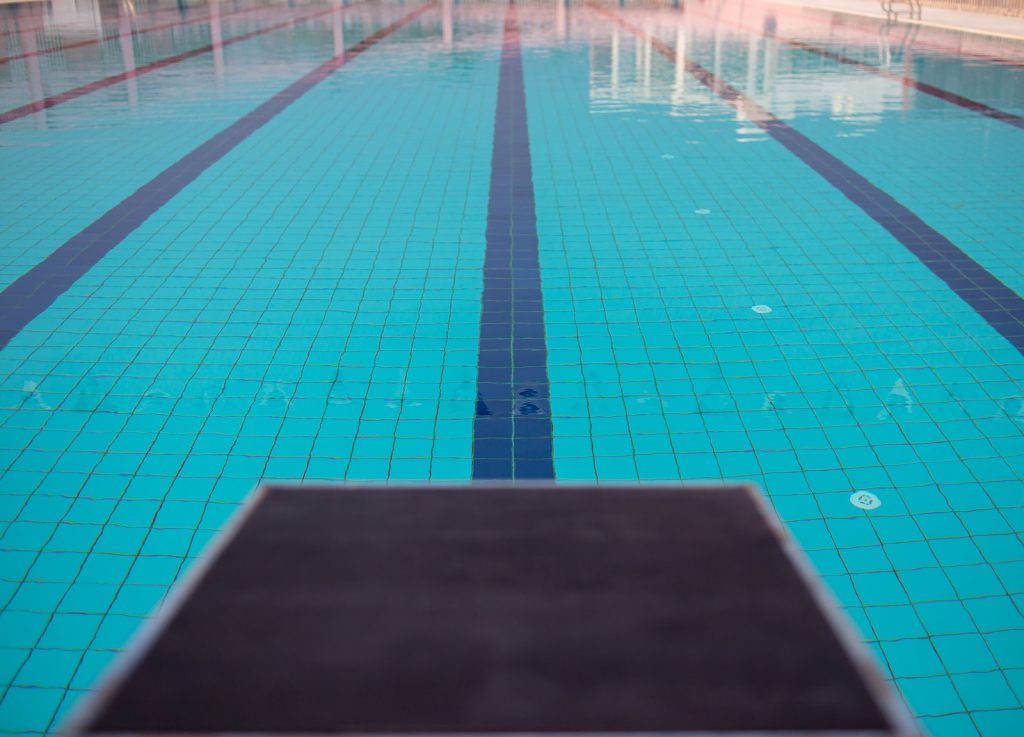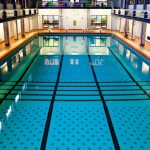Pool Inspections in NJ: A CPO®’s Guide – Part 2
In order to audit and evaluate a swimming facility, a Certified Pool Operator® must conduct a thorough inspection of the pool and premises. While not all swimming facilities carry out the same pool inspections in NJ, there are some basic guidelines that can be customized for each unique swimming facility. As a Certified Pool Operator®, you should be responsible for the inspection process for your facility. Your facility may not be required to have all of the items mentioned below but you do want to always comply with all applicable codes and regulations.
Sanitation
A swimming facility will not be able to pass through pool inspections in NJ without proper sanitation. Pools should be vacuumed daily or as needed and algae growth should not be visible within the pool. There should not be any dissolved metals or minerals staining the pool surface or causing water discoloration. The pool should have the correct water level that allows for the removal of floating debris and for the continuous overflow of water into pool gutters or skimmers. Pool decks should also be cleaned and disinfected.
Pool water should be tested at the frequency required by code to ensure the water is disinfected and balanced and chemicals are all within acceptable ranges. Diatomaceous earth, chemicals, or discharged pool water should be neutralized, separated, and disposed of. Filter media or elements should be clean, without channeling, mudball formation, or bridging. If a facility uses automated chemical controllers, they should be calibrated correctly and operating properly. Hair and lint strainers baskets should be clean of debris.
The air quality on indoor pools should also be monitored for unpleasant odors and fumes, with humidity levels within 50%-60% for best comfort. Swimming facilities should have a system for regular testing, recording and making chemical adjustments to the pool water, as well as regular bacteriological analysis performed by an independent laboratory. A swimming facility should also provide a diaper changing area, sanitary bed liners and disposal can for soiled diapers. All trash bins should have containers and be emptied regularly. Saunas and steam rooms should be regularly cleaned and disinfected. Measures should be taken to prevent pest infestation as well.
Lighting
Lighting is another substantial consideration with pool inspections in nj. All lights should be operational and installed in compliance with the National Electrical Code Article 680. The pool area should be well lit with sufficient overhead and pool lighting. Security lighting systems should be installed and all light systems should be tested regularly. Glare from artificial light should not interfere with the ability to see underwater.
Managerial Procedures
Every public swimming facility should have a current license and post it in a visible area. There should be detailed maintenance checklists for daily opening and closing procedures as well as seasonal and long term maintenance procedures. All lifeguards hired should have the proper training and certifications. The pool manager or operator should be certified, ideally through the Certified Pool/Spa Operator certification program. Facilities need to be in compliance at all times with all local, state, and federal codes
Storage
Adequate storage space must be provided for the secure storage of all pool equipment. First aid kits should be stocked and instantly accessible from a safe storage area. All storage areas should be lockable and have two exits if chemicals are being stored. All test kits should be properly stored. Chemicals should be properly stored, contained, labeled, transported, and handled in compliance with the best chemical storage practices. Equipment for cleaning up chemical spills should also be stored and readily available.
Heating
The water temperature of a pool or spa should always be maintained within acceptable levels for the activities being conducted in the pool. The pools heater should be properly sized and maintained, with all pool chemicals and flammable materials stored a safe distance away. There should be adequate clearances between the heater and the room’s walls as well. The heater should be installed on a level, non-combustible base with safety devices properly installed to prevent improper operation and injury.
A copper, stainless steel, or CPVC heat sink should be installed between the heater and any piping. Heaters should be installed downstream of the pump and filter and upstream of the chemical injection equipment. Compensations should be made for any variables that reduce heater efficiency. Any solar heating systems should be installed and maintained properly.
Locker Rooms and Amenities
Locker rooms should be cleaned, maintained, illuminated, and well-ventilated. Locker rooms should be sized adequately for patron privacy and they should have lockers provided for the anticipated user loads. Toilet paper, paper hand towels, soap, and other amenities should be filled and available at all times. The suit dryer should also be operational and in good repair. Facilities should also have a drinking fountain available within the pool enclosure.
Pool Decks
During pool inspections in NJ, make sure the pool decks are sloped properly to ensure proper water drainage. Decks on all four sides of the pool should be in compliance with state and local codes. Around the pool deck, adequate fencing, gates, barriers, alarms, and other protective devices should be installed to prevent unauthorized entry to the pool.
Spas, Saunas, Steam Rooms
Spas, saunas, and steam rooms are all contained in the pool inspection process. The spa timer should be operational and located in an area that can not be reached by someone within the spa. Sauna timers should be working and located outside of the rooms. The steam generator in a steam room should be properly sized. Doors to saunas and steam rooms should open outwards, with a window on the door and without locks or latches. Properly functioning subdued lighting, clocks, thermometers, and emergency alarms should all be within steam rooms and saunas. Temperature regulators should be installed to automatically shut off the steam or heat in saunas and steam rooms when a maximum temperature is reached.
Experts Pool Inspections In NJ
At Pool Operation Management, we offer professional swimming pool inspections in NJ for both residential and commercial pools, pool operation consulting, and can even act as an expert witness in pool-related legal cases. If you are considering becoming a pool inspector, we also offer award-winning CPO® certification courses to give you the most comprehensive education in everything involved with pool operation.
Over a two-day course or during online training, our experienced professionals will not only help you get certified, but you will acquire real-world knowledge to aid you in your career of pool operation. To start your CPO® certification courses or use our many services, contact Pool Operation Management today.








